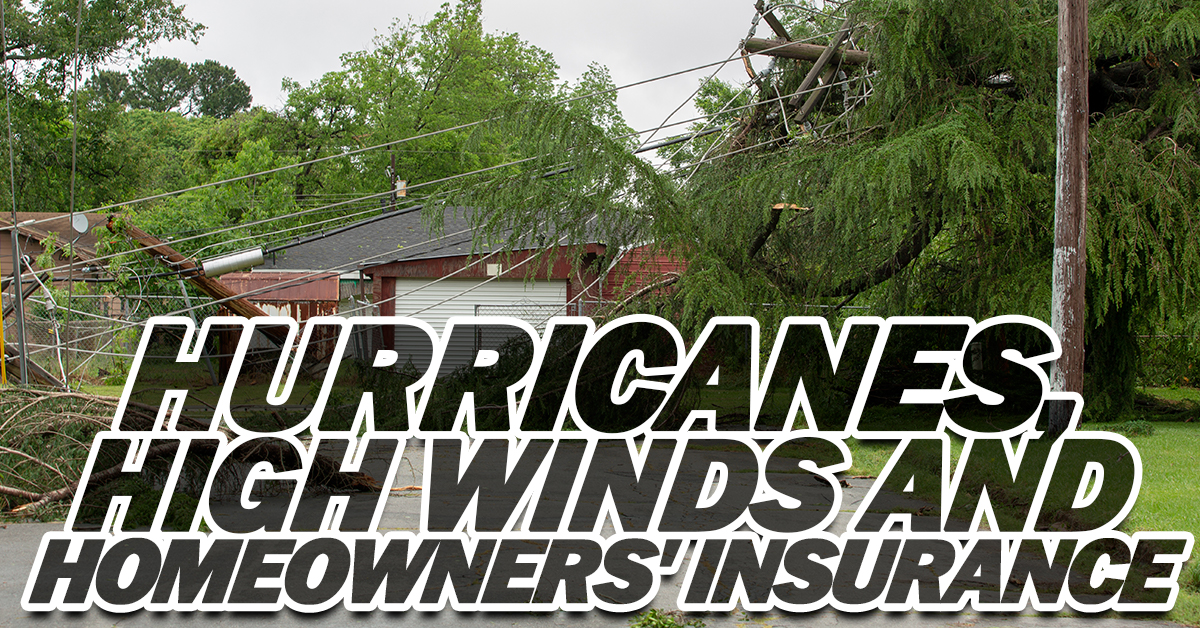Hurricanes, High Winds and Homeowners’ Insurance

Hurricanes, High Winds and Homeowners’ Insurance
Winds come in a variety of forms. There are tornadoes, straight line winds, ‘Noreasters and hurricanes. The good news is that if high winds should damage your home, your homeowners’ insurance policy will likely cover the damage. This usually includes damage to roofs and siding as well as damage done from fallen trees. Winds are, in fact, one of the biggest factors that cause homeowners to file homeowners’ insurance claims. Depending on where you call home, you may experience a variety of winds during any given year.
The Midwest is known for the strength of its tornadoes, rated on the Fujita scale. An F0 tornado, known as a Gale tornado, ranges from 40-72 miles per hour. An F3 or Severe Tornado has winds ranging from 158-206. An F5 or Incredible Tornado has winds that range from 262-318 mph. Florida, known for its number of tornadoes generally has less severe twisters.
When it comes to hurricanes, winds must reach 74 miles per hour to become a level one. Level 2 hurricanes start at 96 miles per hour. Strong hurricanes begin at 111 miles per hour with Category 4 storms rated at 130 mph. Hurricanes reaching 157 mph or more are considered powerful Category 5 storms.
High winds, however, do not need to be accompanied by a tornado or hurricane to do damage. Winds as low as 40-60 mph can have damaging winds, much of it caused by blowing debris and falling limbs. High winds in especially wet conditions can be particularly damaging do to uprooted root systems. Tree damage can also be severe in areas that haven’t experienced high winds over several years. It is a form of Mother Nature’s trimming services.
If you are unsure of your homeowners’ insurance coverage or what wind-related coverage you may have, contact one of our independent insurance agents. They’ll review your current policy and seek out quotes that could potentially save you money. Get the peace of mind you deserve in high winds by contacting us today. We look forward to assisting you.









